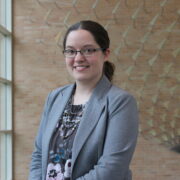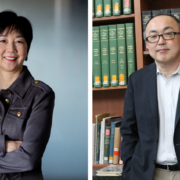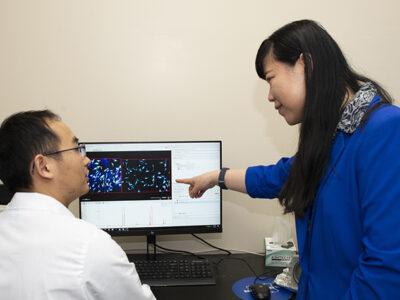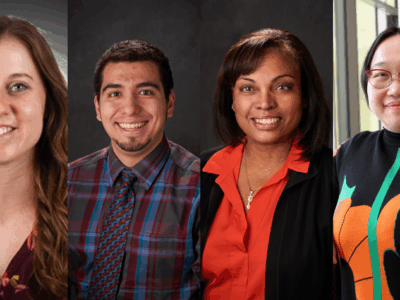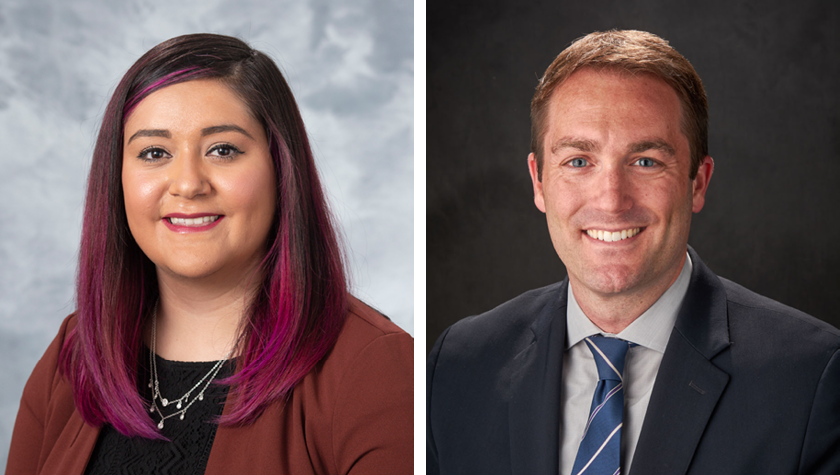
9
September

ACCP and AACP select Assistant Professor Marina Maes and Associate Professor Warren Rose for leadership trainings to enrich academic and clinical pharmacy
By Archer Parquette
The next generation of pharmacy leaders is coming from the University of Wisconsin–Madison School of Pharmacy. This year, two faculty members, Assistant Professor of Pharmacy Practice Marina Maes and Associate Professor of Pharmacy Practice Warren Rose, have both been selected for competitive national leadership programs.
Rose was chosen for the American Association of Colleges of Pharmacy’s (AACP) Academic Leadership Fellows Program, and Maes is joining the American College of Clinical Pharmacy’s (ACCP) Professional Leadership Development Program.
“My goal is to take on a leadership position within the School of Pharmacy in the future,” says Maes. “Being a part of this program will help me grow as a leader and an advocate for others, and I hope it will set me up to make that transition from junior faculty to leadership.”
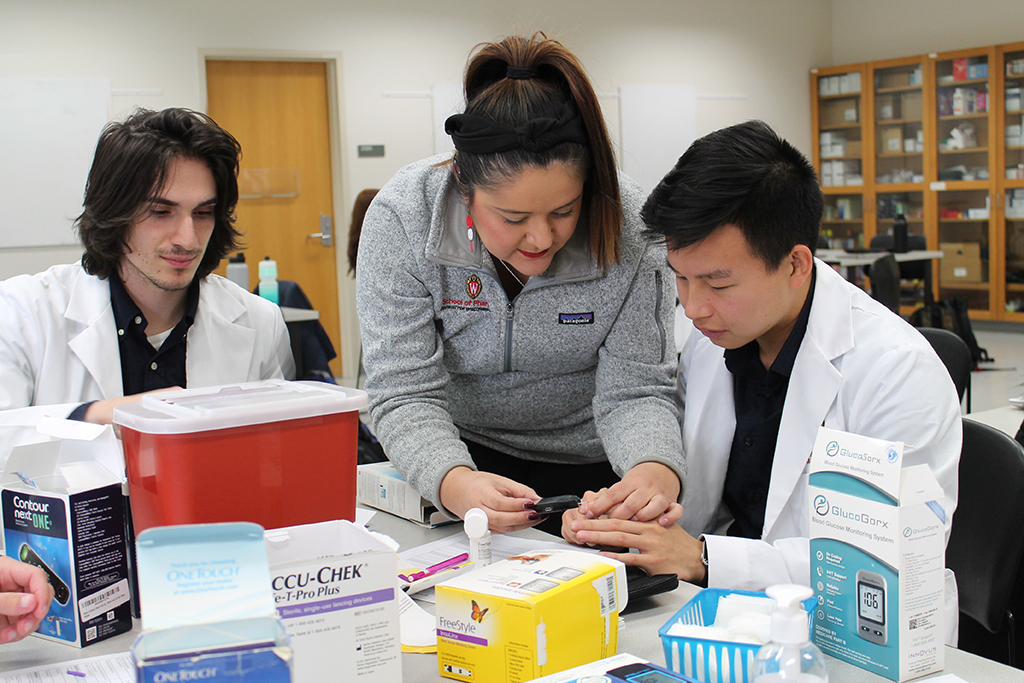
Maes has already made a significant impact at the School of Pharmacy. In 2020, she founded and led the school’s Pharmacy Families program, launched to help PharmD students connect through peer and faculty mentorship, social programming, and more. She has also testified at the state capitol on behalf of a bill that would allow pharmacists to prescribe contraception, and is an officer for the ACCP’s Women’s Health Practice and Research Network. Those experiences helped her application stand out among many.
“UW is a pioneer at the forefront of innovative clinical practice and research. In my past five years here, I’ve really been able to use the resources at UW to expand and grow in a lot of areas,” she says. “I’ve grown as a teacher, in my clinical practice, and in my ability to care for people.”
The year-long Professional Leadership Development Program will give Maes the opportunity to broaden her skills with a cohort of 20 other pharmacists. Under the guidance of mentors, program participants undergo classes, workshops and more to grow as leaders. At the end of the year, the larger cohort is broken into smaller groups to work on a capstone project with one of the program’s mentors.
“One of the goals is to leverage your strengths to build effective teams and become an inclusive leader, which is really important to me,” Maes says. “Beyond the actual content of the program, I’m also excited to be a part of this cohort of talented people from across the country. There’s a lot of power in relationship-building and learning more from others.”
Rose went through a similarly competitive application process to become a part of the Academic Leadership Fellow’s 21st cohort of 35 fellow academic pharmacists from across the country. Once he graduates from the program, he’ll join its over 500 alumni, including three School of Pharmacy alumni and two faculty members: Andrea Porter and Mary Hayney, professors of pharmacy practice.
“It’s a program with a strong history, and a track record of developing leaders that have influence in the academy and in pharmacy,” Rose says. “If you look at people who are driving innovation in pharmacy schools, a lot of people have come from this program. I’ll have the opportunity to meet accomplished people and bring new ideas back to the School of Pharmacy.”
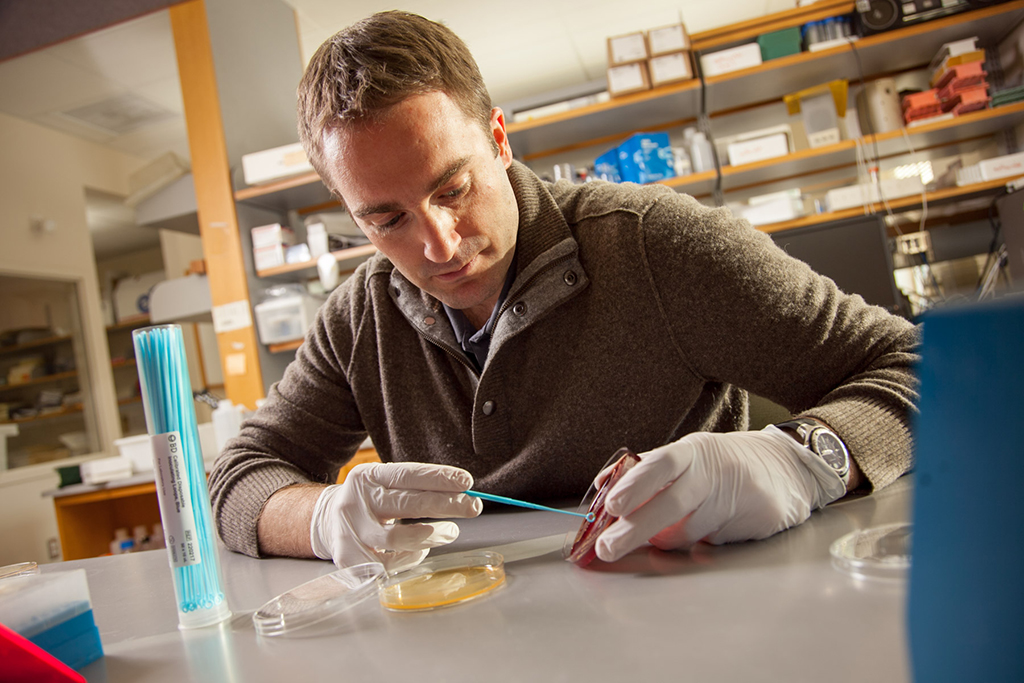
Over the yearlong program, Rose will attend sessions about leadership development, team-building, and the historical context and current trends in academic pharmacy, as well as practical management and administrative workshops.
“This year’s cadre of exceptional talent will undoubtedly help shape the future of academic pharmacy and higher education,” said AACP President and CEO Lee Vermeulen (MS ’92) in a press statement.
“Looking at my career, this is an opportunity to spend focused time with others in academia to help understand my leadership style,” Rose says. “I plan to apply that to my work at the School of Pharmacy, whether that’s in the clinical setting or academic. I think there will be ways to improve my leadership style and tailor it toward particular situations based on the experience I’ll have in this program.”
Rose is looking forward to meeting future leaders in pharmacy, as well.
“It’s a chance to step outside my comfort zone and get to know people that I otherwise wouldn’t have the chance to develop those interpersonal relationships with,” Rose says.
He’ll also receive mentorship from Steve Swanson, dean of the UW–Madison School of Pharmacy, who is part of the program. At the end of the year, Rose will present a poster highlighting some of the cohort’s findings over the year before a graduation ceremony honoring the participant’s work.
“It’s certainly an honor to be selected, but I also look at it as an opportunity,” Rose says. “It’s a chance to grow as a professional, an academic, and a pharmacist.”


